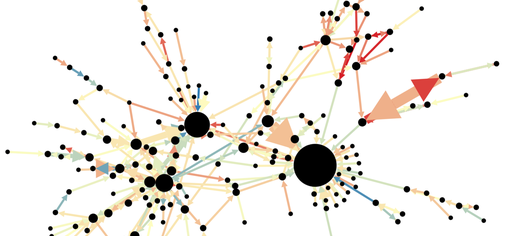Sentiment Analysis of Social Media: A Comprehensive Guide to ChatGPT Applications

In today's digital age, social media platforms are the pulse of public opinion. From personal experiences to political debates, these platforms offer a treasure trove of data for businesses, governments, and researchers. Sentiment analysis, or the process of extracting and categorizing subjective information from text, has emerged as a valuable tool for understanding public sentiment. In this comprehensive guide, we will explore how ChatGPT, a state-of-the-art language model, can be harnessed to perform sentiment analysis on social media data, and the potential applications across various industries.
What is ChatGPT?
ChatGPT, based on the GPT-4 architecture, is an advanced language model developed by OpenAI. It uses deep learning algorithms to analyze and generate human-like text responses. With its ability to comprehend context and generate coherent responses, ChatGPT can be employed for a wide range of tasks, including sentiment analysis of social media data.
How ChatGPT Enhances Sentiment Analysis on Social Media
- Improved accuracy: ChatGPT's advanced understanding of natural language helps in accurately categorizing sentiments, reducing false positives and negatives, and providing more reliable insights.
- Contextual understanding: Unlike traditional sentiment analysis methods, ChatGPT can analyze the context in which a statement is made, leading to a better understanding of the underlying sentiment.
- Multilingual support: ChatGPT's ability to process text in multiple languages enables sentiment analysis across a diverse range of social media platforms and demographics.
- Real-time analysis: ChatGPT's processing speed allows for real-time sentiment analysis, enabling businesses to respond quickly to shifts in public opinion or emerging trends.
Applications of ChatGPT in Sentiment Analysis
- Brand monitoring: Businesses can use ChatGPT to monitor their brand's online reputation, track customer satisfaction, and identify areas for improvement.
- Market research: By analyzing social media conversations, ChatGPT can help identify trends, preferences, and unmet needs within a market, providing valuable insights for product development and marketing strategies.
- Customer service: ChatGPT can assist customer service teams in identifying and prioritizing customer complaints and compliments, allowing for faster and more effective response.
- Political analysis: Governments, NGOs, and think tanks can use ChatGPT to gauge public opinion on various issues, enabling them to make more informed policy decisions.
- Crisis management: Businesses and organizations can employ ChatGPT to monitor public sentiment during crises, helping them identify potential problems and develop effective communication strategies.
- Mental health monitoring: ChatGPT can be used to analyze social media posts for signs of mental health issues, enabling early intervention and support for individuals in need.
Conclusion
ChatGPT is a powerful tool that can revolutionize sentiment analysis on social media platforms. With its ability to understand context, support multiple languages, and provide real-time insights, ChatGPT has the potential to transform industries and improve decision-making processes. As we continue to advance AI technologies, the applications of ChatGPT in sentiment analysis are only expected to grow, offering even more value to businesses, governments, and researchers alike.